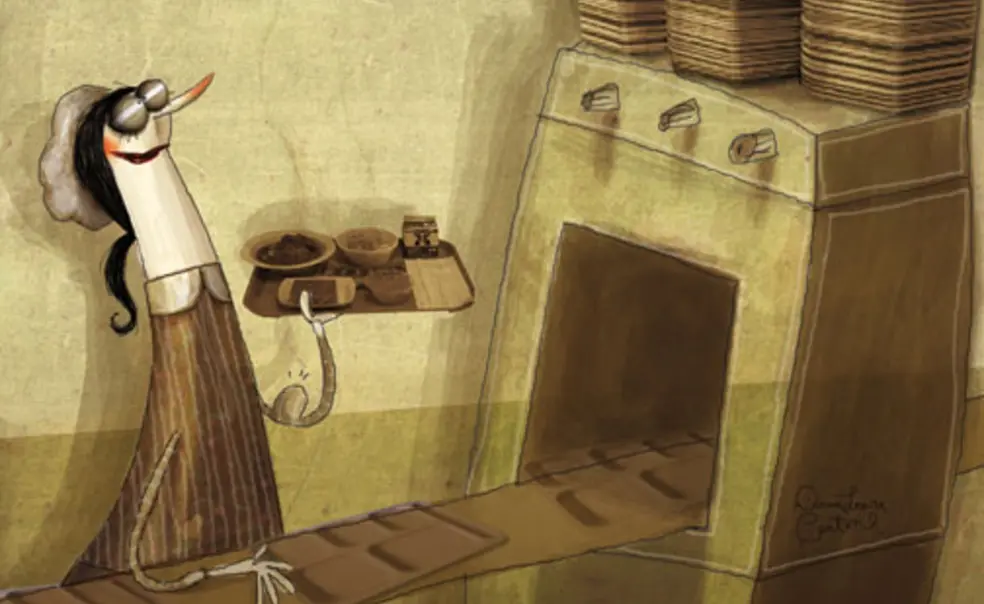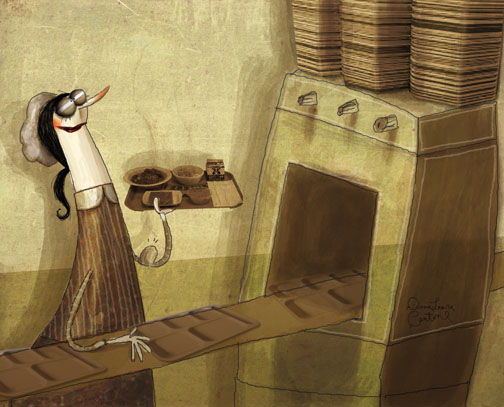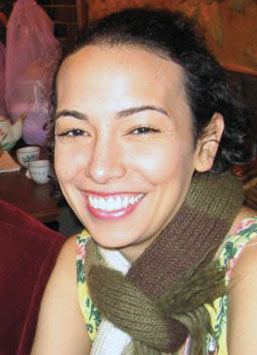Before arriving on campus, I photocopied a picture of my assigned dorm, Witherspoon, and taped it into my journal. I dreamed about what my Princeton life would be, and the Victorian gothic dorm fit right in. But there was another element that didn’t fit at all — a work-study assignment in the dining hall. Serving food to my fellow students? Wearing an apron? A hair net, even? No, I’d better pursue a library job. Sitting behind a desk and stamping books was much more “me.”
But as my fellow freshmen and I listened to an orientation given by upperclassmen under Rocky dining hall’s high cathedral-style windows, I decided to give Princeton University Dining Services (PUDS) a chance. After all, the dining hall paid more than any other work-study job. Plus, by then I already knew the stairs, arches, and stone path between Rocky Dining Hall and Witherspoon better than any other route on campus.
I threw myself into PUDS, racking up hours with a vengeance. The exotica of the dining hall fascinated me: the oversized pots, pans, and utensils; walk-in freezers; tubes of carbon dioxide for soda; spaghetti mops; and so forth. I liked learning tasks on complex machines developed for singular purposes, like one that rinsed out the trash cans with the press of a foot pedal, and the mechanical trash bin whose gaping maw devoured leftovers at the end of the night.
The most daunting machine aptly was nicknamed The Machine, a long metal snake in the center of the kitchen. I quickly grew accustomed to The Machine’s roar because I worked mostly on “Third Crew,” which took care of the behind-the-scenes work during meals. We handled the trays the students sent back on the line, stacking dishes, sorting silverware, and loading them into The Machine, which spit them out clean and scalding hot. As the meal neared its end, the trays came one after another with no breaks, in what we called “rushes.” I learned to move my arms lightning-fast to prevent the trays from jamming the line. During a rush, I felt challenged in a way that was less terrifying than speaking up in class or writing a long paper. My arms, which fast developed impressive biceps, did all the work; my mind could fade out.
Soon I was looking forward to coming to the dining hall, to work and to eat. I always knew someone working, whether a student or regular Dining Services employee. I listened eagerly to the stories of the older students, many of whom who had attained the exalted status of student managers. The managers did less grunt work, made more money, and seemed to know every last secret about PUDS. I bonded with fellow freshmen, scooping ice cream in the peaceful, dark dining hall at the shift’s end. When I applied to become captain, head of a crew, my friends wrote “Chill out!” on a napkin and sent it down the line for me to read. We wrote a parody about Third Crew, sung to the tune of Gloria Gaynor’s “I Will Survive”:
When I first did Third Crew, I began to whine
Thinking I could never get those dishes off the line;
But then I learned to stack those trays
In a million different ways; And I grew strong:
I’ll be captain before long ...
I felt as though I belonged in the dining hall more than with other student groups. When I attempted to join those, I felt awkward and nervous. At the dining hall, there was a straightforwardness of purpose. I didn’t need to impress people with my conversational abilities, or wonder if I was funny or smart enough. All I needed to do was to help ensure that the toaster oven didn’t start a fire, the yogurt machine didn’t make puddles, and that the heavy orange bins of slop — the curious liquid amalgam produced from leftovers — didn’t tip over.
I enjoyed getting a peek into another world, the adult world of the regular workers, where priorities were different. As a dining-hall customer, you’d only get brief glimpses of the regular workers keeping the meal going, but in the back, I saw full and distinct personalities. The adults had their own web of relationships and their own perspective of Princeton — as a workplace. Their friendships and real-world concerns seemed refreshingly distant from the concerns of the students. After developing casual friendships with the dining-hall workers, I came to feel that my reluctance about working in the dining hall had been naïve. It didn’t make much sense to scorn a job done by people I liked and admired.
I felt pride when some of the regular dining-hall workers learned my name. It made me feel legit. Though I never was a full part of their world, just knowing it existed was enough to give me some breathing room on a campus, that, although overwhelmingly beautiful, could feel claustrophobic.
As time passed, I felt more secure at Princeton, and the energy and camaraderie of Third Crew seemed less important. As a sophomore, I earned the right to do the easiest job: card-checking. I swiped cards and watched the Social Security numbers spring up on the tiny screen. Occasionally another worker would wander over, and we’d chat. Then, as a junior, I got the library job I had wanted at first. I worked behind a counter at the architecture library. There was no community of library workers, and scanning books was much less thrilling than admiring a pyramid of stacked glasses or taking in the horror of a spilled can of slop. My job was just a job.














No responses yet